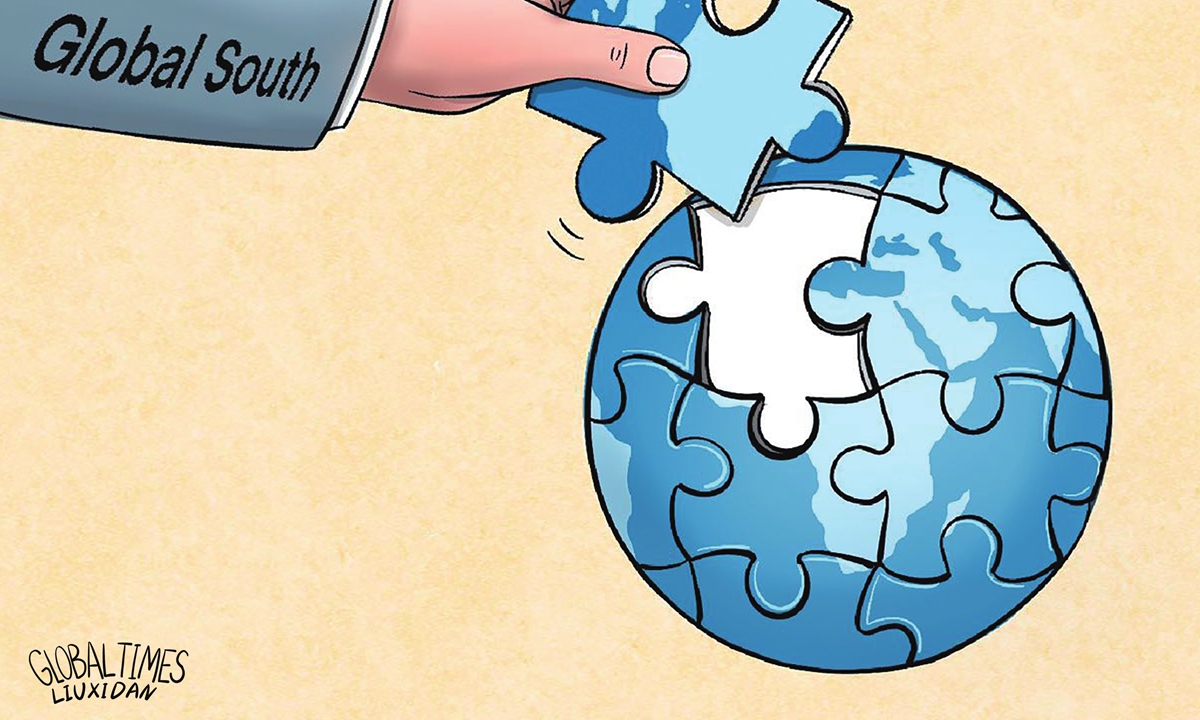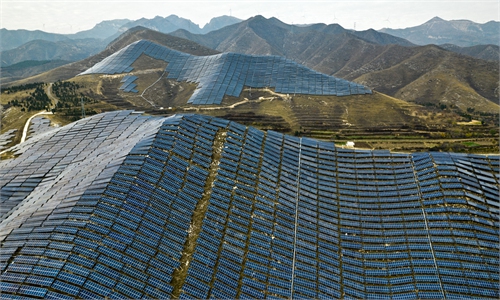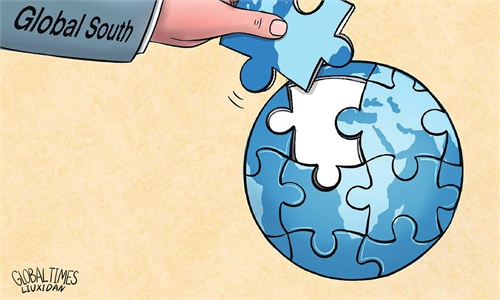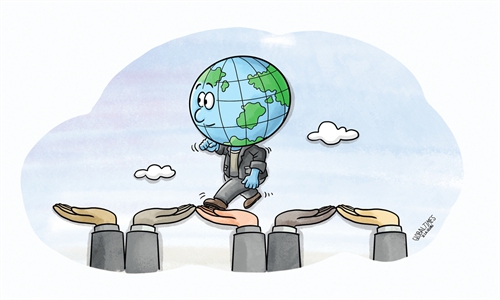Lessons from COP27: Enhance cooperation of Global South when developed countries continue to default duty

Illustration:Liu Xidan
The climate crisis demands urgent solutions, but the recently concluded COP27 did not produce the necessary results. After controversial negotiations that lasted for days, the creation of a fund, financed by developed countries to compensate developing countries for "losses and damages" caused by increasingly recurrent extreme weather conditions such as floods, droughts, typhoons, unprecedented cold and heat waves, was approved. However, the fundamental decisions - who pays how much, and how, for whom - have been postponed until COP28 in Dubai. Furthermore, no progress has been made on agreements to cut emissions from fossil fuels and their subsidies, or to reduce coal-fired power production, both of which are direct causes of global temperature increases.
Many countries from the Global South expressed their mistrust, not only because of the insufficient content of the final document, but also because of the developed countries' history of not complying with agreements signed years ago. This is the case of the $100 billion annual fund promised since the COP15 in Copenhagen in 2009 to help less developed countries face the climate crisis. Brazil's president-elect Lula da Silva - who made his reappearance on the global stage - was incisive on this point, pointing out that the money should have been paid out since 2020. "It is sad, but this commitment has not been, nor is it being fulfilled," said President Lula, chorusing with Xie Zhenhua, the Chinese special envoy for climate and special representative of Chinese President Xi Jinping, who reaffirmed the urgency of implementing this agreement.
According to a 2019 research report from the website Our World In Data, the Global North is responsible for more than half of all carbon emissions since the Industrial Revolution in the mid-1800s until 2017, while India, Africa, and South America each emitted about 3 percent, and China 12.7 percent. According to the principle of "common but differentiated responsibilities" - agreed upon since 1992 - it is fair that developing countries receive compensation for environmental damage caused mostly by developed countries.
However, the US and Europe continue to try and construct a narrative that shifts the blame to China. This is indeed the biggest emitter today (followed by the US). But blaming China is wrong for a few reasons, because: 1) it ignores the fact that the Asian country produces about 30 percent of global manufacturing, so a reasonable share of pollution generated by consumption in the world is transferred to the Chinese, and 2) China's per capita emissions are about half of the US and other developed countries. In fact, this year, according to projections by the Global Carbon Project, global emissions are expected to increase in 2022, mainly due to the US (1.5 percent) and India (6 percent), while China is expected to decrease its emissions (0.9 percent). China has given numerous demonstrations of its commitment to concrete solutions to environmental challenges.
Not only has China pledged to achieve carbon neutrality by 2060, but it is now also the largest investor in renewable energy, which accounted for more than 30 percent of the country's electricity production (January to July 2022), with 43 percent of the world's total global investment (first half of 2022), more than the next six countries combined. However, in addition to creating clean energy sources, it is urgent that we accelerate the restoration of the enormous damage done to the environment, especially in recent decades. China has also accumulated invaluable know-how in environmental recovery technologies: from desertified areas transformed into forests, to the desalination of soils recovered for agriculture, to the revitalization of lakes whose pollution was believed to be irreversible, among countless other examples.
The refusal of rich countries to assume their historical responsibilities for the climate crisis that threatens humanity will have to be faced on many fronts by the countries of the Global South: first, it will be necessary to strengthen initiatives such as the South-South Climate Cooperation Fund, created in 2015 by President Xi Jinping, in which China has already invested more than $4 billion. In addition to financial resources, such platforms can serve to exchange environmental restoration technologies, such as those from China (and other countries), in order to advance the recovery of soil, water, air, and forests as quickly as possible. Second, the countries of the Global South need to strengthen themselves in international forums like the COP - but also in the IMF, World Bank, G20, and UN - by increasing their bargaining power in negotiations with the Global North. The rich countries' default on the agreement of $100 billion per year for the environment is a demonstration of how much progress is still needed.
For this, the expansion of regional and global articulations of the South, such as BRICS and the Shanghai Cooperation Organization (SCO), will be fundamental. Lula da Silva's victory will bring back Brazilian protagonism to BRICS, which is attracting growing interest from more than 10 countries, while the SCO has also been growing in recent years. Even a NATO member, Turkey, has expressed interest in joining both groups. In 2023, new winds should come from the South.
The author is a researcher at the Tricontinental Institute for Social Research, co-editor of Dongsheng and organizer of the No Cold War campaign. opinion@gloabltimes.com.cn





